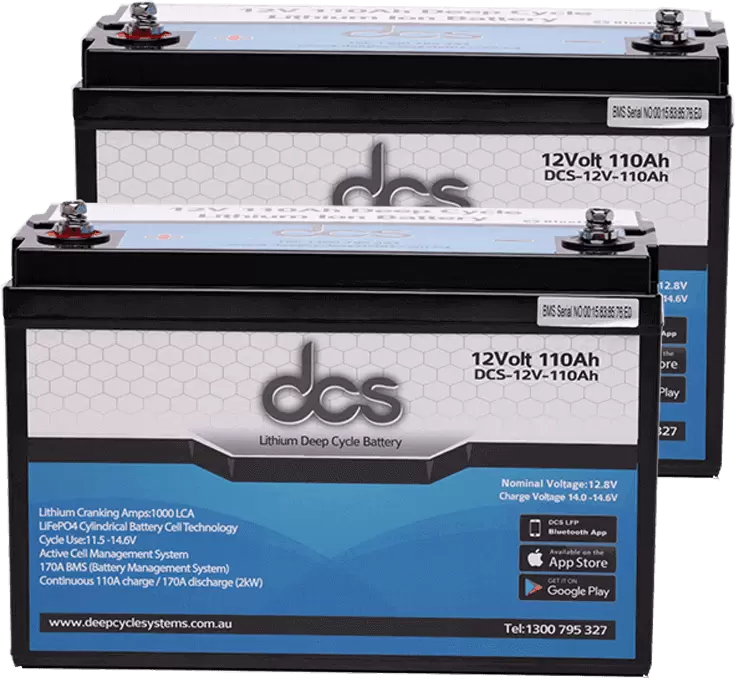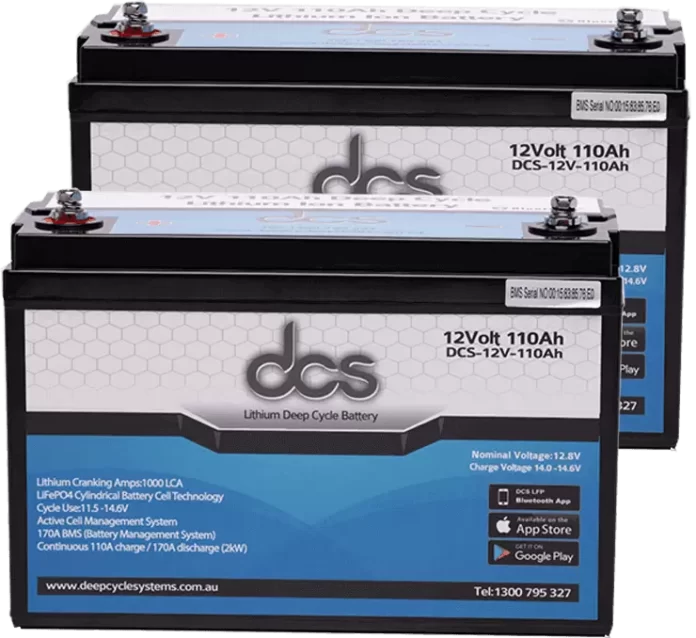Lithium batteries are a major technological breakthrough that has revolutionized our lives. These versatile energy storage solutions have become an essential part of our everyday lives, from powering our cell phones and laptops to electric cars and solar energy storage. In this blog post, we’ll take a closer look at the basics of lithium-ion batteries, including how they work, the different types available, and their advantages and disadvantages.
What are Lithium-Ion Batteries?
Lithium-ion batteries are rechargeable batteries that have become incredibly popular due to their high energy density and long cycle life. Unlike traditional batteries, which rely on chemical reactions to produce electricity, lithium-ion batteries use lithium ions to create and store energy. These batteries comprise three key components: a positive electrode (cathode), a negative electrode (anode), and an electrolyte.
The cathode is typically made from a lithium-based compound, such as lithium cobalt oxide or lithium iron phosphate. The anode, on the other hand, is usually made from graphite. The electrolyte is a liquid or gel substance that allows the movement of lithium ions between the cathode and anode. When a lithium-ion battery is being charged, lithium ions move from the cathode to the anode, creating a flow of electrons. This process is reversed when the battery is discharged, with lithium ions moving from the anode back to the cathode.
This constant movement of ions allows the battery to store and release energy. Lithium-ion batteries are known for their high energy density, which means they can store a large amount of energy in a compact size. They are also lightweight, have a long cycle life, and offer excellent voltage stability. These qualities make them ideal for various applications, from powering our portable electronic devices to supporting renewable energy systems.
Advantages of Lithium-Ion Batteries
Lithium-ion batteries offer many advantages, making them the go-to choice for powering our modern devices and renewable energy systems. One of the key advantages of lithium-ion batteries is their high energy density, which means they can store a large amount of energy in a compact size. This makes them ideal for portable electronic devices, where space is limited. Another advantage of lithium-ion batteries is their lightweight nature. Lithium-ion batteries are significantly lighter than traditional batteries, making them perfect for applications where weight is a concern, such as electric vehicles.
Lithium-ion batteries have a long cycle life, meaning they can be charged and discharged numerous times without significantly degrading their performance. One of the most important advantages of lithium-ion batteries is their excellent voltage stability. Unlike other battery technologies, lithium-ion batteries can maintain a stable voltage output throughout their discharge cycle, providing a consistent and reliable power source. The advantages of lithium-ion batteries – high energy density, lightweight design, long cycle life, and excellent voltage stability – make them a standout choice for various applications, revolutionizing how we power our lives.
Understanding the Chemistry behind Lithium Solar Batteries
Lithium solar batteries, also known as lithium-ion batteries, operate based on the principles of electrochemistry. To understand their chemistry, we must delve into the materials used in their construction. A lithium-ion battery’s positive electrode or cathode is typically made from lithium-based compounds such as lithium cobalt oxide or lithium iron phosphate. These materials are selected for their ability to host lithium ions and release them during the battery’s discharge.
On the other hand, the negative electrode or anode is commonly made from graphite, which can intercalate or absorb the lithium ions when the battery is charged. The electrolyte in a lithium-ion battery is a crucial component that facilitates the movement of lithium ions between the cathode and anode. It is usually a liquid or gel substance containing lithium salts and other additives to enhance ion conduction.
Lithium ions flow from the cathode to the anode when the battery is charged through the electrolyte. During discharge, the movement of lithium ions is reversed. Understanding the chemistry behind lithium-ion solar batteries helps us appreciate the intricate interplay of materials and electrochemical processes that make these batteries so efficient and versatile.
 Common Uses of Lithium-Ion Batteries
Common Uses of Lithium-Ion Batteries
Lithium-ion batteries have become ubiquitous in our daily lives, powering a wide range of devices and systems. One of the most common uses of lithium-ion batteries is in portable electronics such as smartphones, laptops, and tablets. Their high energy density and compact size make them ideal for powering these devices while on the go. Lithium-ion batteries are also commonly used in electric vehicles, providing the necessary power to propel these cars without the need for traditional combustion engines.
This not only reduces our reliance on fossil fuels but also helps in reducing air pollution. Lithium-ion batteries are extensively utilized in renewable energy storage systems, allowing us to store and use electricity generated from solar panels and wind turbines. We can reduce our reliance on traditional power grids and decrease our carbon footprint by harnessing this clean energy and using it during peak demand periods. In summary, lithium-ion batteries are revolutionizing how we power our devices and systems, making our lives more convenient and sustainable.
Safety Precautions to Keep in Mind When Handling Lithium-Ion Batteries
Lithium-ion batteries are powerful energy storage devices that have become integral to our lives. While they offer numerous benefits, it is important to handle them with caution to ensure safety. Here are some safety precautions to keep in mind when handling lithium-ion batteries:
Avoid physical damage:
Do not puncture, crush, or drop lithium-ion batteries, as it can cause internal damage and potentially lead to a fire or explosion. Always handle them with care.
Proper storage:
Store lithium-ion batteries in a cool and dry place, away from direct sunlight and extreme temperatures. Avoid storing them in high-temperature environments, as it can degrade their performance and pose a safety risk.
Use compatible chargers:
Always use the charger specifically designed for your lithium-ion battery. Using incompatible chargers can cause overcharging, overheating, and damage to the battery.
Don’t overcharge:
Avoid overcharging your lithium-ion batteries. Once they are fully charged, disconnect them from the charger to prevent overcharging, which can lead to thermal runaway and battery failure.
Prevent short circuits:
Avoid exposing lithium-ion batteries to metal objects or conductive surfaces, which can cause a short circuit. This can result in overheating, fire, or explosion.
Tips for Maximizing the Lifespan of Solar Lithium Batteries
Solar lithium batteries are an important investment for those looking to harness clean energy from the sun. To ensure that you get the most out of your solar lithium-ion batteries and maximize their lifespan, here are some useful tips to keep in mind:
Charge at the optimal voltage:
Use a charger specifically designed for lithium-ion batteries and charge them at the recommended voltage. Charging at too high or too low of a voltage can reduce the battery’s lifespan.
Avoid over-discharging:
It’s important to avoid fully depleting your solar lithium-ion batteries. Set the discharge limit to a safe level, typically around 20-30% of the battery’s capacity. This will help prevent irreversible damage to the battery.
Keep them at the right temperature:
Extreme temperatures can negatively impact the performance and lifespan of lithium-ion batteries. Ensure your batteries are stored and used in a temperature-controlled environment, ideally between 20-25 degrees Celsius.
Regular maintenance:
Clean the terminals of your solar lithium-ion batteries regularly to remove any dirt or corrosion. This will help maintain good contact and optimize performance.
Don’t overload:
Be mindful of the power demands placed on your solar lithium-ion batteries. Overloading them with excessive power draw can lead to overheating and reduced lifespan. Make sure to size your battery system for your specific needs properly.
Exploring the Future of Lithium Ion Battery Technology
As lithium-ion batteries continue to dominate the energy storage landscape, researchers and scientists are tirelessly working on innovations to improve their performance and address their limitations. The future of lithium-ion battery technology holds exciting possibilities that could further revolutionize our lives. One area of focus is enhancing energy density. Lithium-ion batteries could power even more advanced electronic devices and extend the range of electric vehicles by packing more energy into a smaller size.
Another area of research is improving battery safety. While lithium-ion batteries are generally safe, incidents of overheating and fires have raised concerns. To mitigate these risks, researchers are developing new electrolyte materials that are less flammable and exploring the use of solid-state electrolytes, which are more stable and less prone to thermal runaway. Advancements in recycling and sustainable manufacturing techniques are being explored to address the environmental impact of lithium-ion batteries.
FAQs
Q: Are lithium-ion batteries safe to use?
A: Yes, lithium-ion batteries are generally safe when handled and used correctly. However, following proper safety precautions to prevent accidents, such as avoiding physical damage and using compatible chargers, is important.
Q: How long do lithium-ion batteries last?
A: The lifespan of a lithium-ion battery depends on various factors, including usage patterns and environmental conditions. These batteries can last several years on average, with many having a cycle life of 500-1000 charge-discharge cycles.
Q: Can I overcharge a lithium-ion battery?
A: Overcharging a lithium-ion battery can lead to overheating and potential damage. It’s important to disconnect the battery from the charger once it’s fully charged to avoid overcharging.
Q: Can I use a different charger for my lithium-ion battery?
A: It is recommended to use the charger specifically designed for your lithium-ion battery. Using an incompatible charger can result in overcharging, overheating, and damage to the battery.
Q: How do I dispose of a lithium-ion battery?
A: Lithium-ion batteries should not be thrown in the regular trash. To prevent environmental contamination, they should be recycled or disposed of properly at designated recycling centers.
Q: Can I use lithium-ion batteries in extreme temperatures?
A: Extreme temperatures can affect the performance and lifespan of lithium-ion batteries. It’s best to store and use them in a temperature-controlled environment, ideally between 20-25 degrees Celsius.
Conclusions
Lithium-ion batteries have transformed the way we power our lives. These remarkable energy storage solutions have revolutionized portable electronics, electric vehicles, and renewable energy systems. Lithium-ion batteries have become the go-to choice for various applications with their high energy density, lightweight design, long cycle life, and excellent voltage stability. While they offer numerous benefits, handling lithium-ion batteries with care is important. We can ensure their safe handling and usage by following safety precautions such as avoiding physical damage, using compatible chargers, and preventing overcharging or short circuits.
| Other Good Articles to Read |
| Skank Blogs |
| Unreal Blogs |
| Tba Blogs |
| All City Forums |
| Dany Blogs |
| Refuge Blogs |
| The Music Blogs |
| Key Forums |
| The Big Blog Theory |
| Joe Blogs |
| Blogs 4 Me |
| Blogs Emon |

